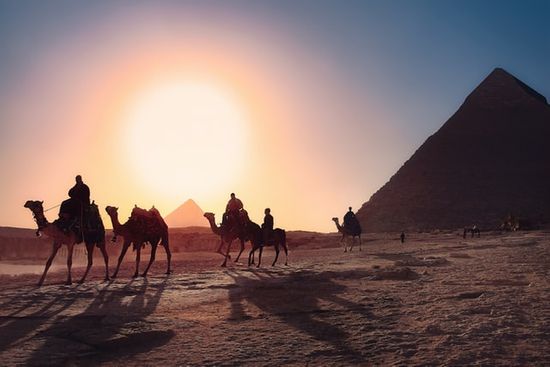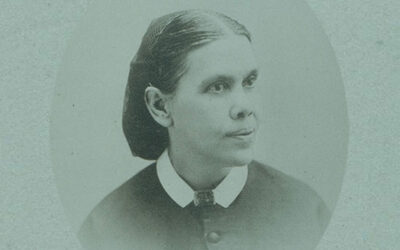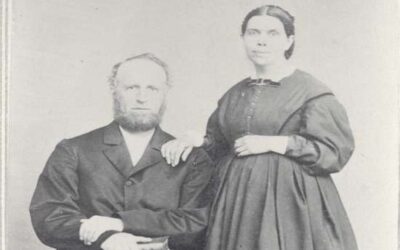The Israelites in the Bible, also known as the children of Israel or ancient Israel, were a nation God called to represent Him to the world. They come from the line of Abraham, whom God first made a covenant with, promising to make his descendants into a great nation (Genesis 12:1-3). Abraham’s grandson Jacob had 12 sons who eventually formed the 12 tribes of Israel.
As recorded in the book of Exodus, God delivered the Israelites from slavery in Egypt under Moses’s leadership and brought them to the Promised Land of Canaan (present-day Israel) in the 1400s BC.
Scripture traces their journey through the wilderness and their settling into the Promised Land. It shows their ups and downs—their faithfulness to God as well as their times of rebellion against Him.
This story, though it happened so long ago, connects with our Christian journeys, offering us many lessons and warnings.
So let’s explore more about these people:
- Who were the children of Israel?
- Why are the Israelites important?
- What can we learn from the Israelites?
Who were the children of Israel?

Photo by Jenna Norman on Unsplash
The children of Israel were a nation of people who came onto the scene of the ancient world in the 1400s BC.1 They were followers of God who descended from a nomadic patriarch named Abraham. In the Bible, Abraham is referred to as a Hebrew, and “Hebrew people” is sometimes used for the whole nation of Israel (Genesis 14:13).
God had promised to give Abraham and his wife a son who would grow into a great nation that would bless the world (Genesis 12:2; 17:5). That son was Isaac, who then had a son named Jacob. Jacob’s 12 sons and their families became the 12 tribes of Israel (Genesis 49:1–2, 28).
But you may be wondering why God chose them to begin with. Was He being exclusive?
Why did God have a chosen people?
God chose the Israelites so that He would have a people through whom He could bless the world.
God often works through ordinary humans to accomplish His glorious plans. But the reason He worked through the Israelites wasn’t because He wanted to bestow privileges on one group of people over another. Instead, He is always seeking everyone, and those who respond become His people with a mission.
Here’s a summary of how this plays out:
- God chose Adam and Eve—the first two humans—to reflect Him and rule over the earth (Genesis 1:26–28). But then they doubted His goodness and love and disobeyed Him. Even though God had chosen them, He had to work with their decisions because He created humans with free will.
- Cain, Adam and Eve’s son, rebelled against God, but God still sought after him and asked: “If you do well, will you not be accepted?” (Genesis 4:7, ESV). Cain chose to turn away, and God was not able to use him.

Photo by Georgia de Lotz on Unsplash
A couple generations later, “people began to call upon the name of the LORD” (Genesis 4:26, ESV). Some Bible versions translate the verse like this: “People began to call themselves by the name of the LORD.” 2 In other words, they chose to take on the name of God—to be His people.
- When the world became almost completely overtaken with evil (Genesis 6:5) God sought out Noah, who responded to Him (Genesis 6:8). As a result, Noah and his family were saved from the Flood.
God has always been in the business of seeking people, but to become His chosen people requires responding to Him.
Then, there was Abraham. God sought him out next.
The call of Abraham
God called Abraham—not because God arbitrarily chooses people, but because Abraham was willing to follow. About 2000 BC, God made a special covenant (agreement) with him (Genesis 12:1–3). The promise included two key elements:
- Land
- Descendants
God was going to bring Abraham to a land where his children would grow into a great nation.
“And I will make of you a great nation…and in you all the families of the earth shall be blessed” (Genesis 12:1–3, ESV).

Photo by Klemen Vrankar on Unsplash
This covenant was key to God’s plan of restoring the world. Adam and Eve had sinned, alienating themselves from Him and one another. But here, He promises to heal that rift: He will bless the people, and they will be a blessing to others.
What was Abraham’s response to all this?
Obedience, surrender, and worship (Genesis 12:7). He accepted the call.
To learn more about the covenants God made with Abraham, read our article on Abraham.
Isaac, Jacob, and Jacob’s 12 sons
Just as God promised, Abraham and his wife Sarah had a son, whom they named Isaac. He, in turn, had a son named Jacob. Jacob made some serious mistakes in his life, but through an encounter with God, he was renamed to Israel—an overcomer. His 12 sons would form the tribes of the ancient Israelite nation.
As we’ve hinted, Jacob’s story didn’t start too well. He runs ahead of God’s promise and ends up stealing his brother’s birthright through deception (Genesis 27:6–23). As a result, he’s forced to flee for his life (verses 41–45).
Years pass by, but eventually Jacob is placed in a tricky situation.
He gets word that Esau is approaching with an army (Genesis 32:6–7). Will Esau take revenge for the stolen birthright now?
In the past, Jacob always tried to take matters into his own hands. But this time, he had no options. While alone during the night, Jacob was startled by a stranger. Out of fear, he fought back.
Soon, he realized this is not a stranger—he was wrestling with God (Genesis 32:30)! When Jacob finds himself growing weary, God blesses him with the following words:
“Your name shall no longer be called Jacob, but Israel, for you have striven with God and with men, and have prevailed” (verse 28, ESV).
In the Bible, names are often associated with character. Jacob’s name is no different. It meant “supplanter” or “deceiver,” correctly representing how he’d tried to get God’s blessing by deception.
Through struggling with God and being willing to learn and grow, Jacob became an overcomer. His new name Israel represented that change of character.
And this was the name bestowed upon the nation that would come from his 12 sons. God wanted this group of people to be overcomers.
Here’s a chart of the 12 sons of Jacob and the resulting tribes:
| The 12 Sons of Jacob (Genesis 49) | The 12 Tribes (Numbers 1) |
| Reuben | Reuben |
| Simeon | Simeon |
| Judah | Judah |
| Zebulun | Zebulun |
| Issachar | Issachar |
| Dan | Dan |
| Gad | Gad |
| Asher | Asher |
| Naphtali | Naphtali |
| Benjamin | Benjamin |
| Joseph | Ephraim (son of Joseph) |
| Levi | Manasseh (son of Joseph) |
Note: The tribe of Levi is not listed because they did not receive an inheritance of land. Instead, God appointed them to care for the sanctuary and its services (Numbers 1:47–54).
Israel’s growth into a nation and exodus

Photo by Simon Berger on Unsplash
The 12 sons of Jacob (Israel) formed the tribes that would become ancient Israel. For this reason they are sometimes called the “children of Israel.” Because of a famine in the Land of Canaan, these sons went to Egypt for a time. There, they grew from a small group of 70 people to over 600,000 (Exodus 1:5; 12:37).
Someone else noticed this rapid growth and grew concerned:
The Pharaoh of Egypt.
Fearing an uprising, he found a way to enslave the Israelite people (Exodus 1:8–14).
But God had a plan for them. In about 1446 BC, He appointed Moses to lead them out of the land of Egypt through a series of miracles. 3
At last, the Israelites were on their way to regaining the land promised to Abraham’s descendants.
But before that could happen, God needed to renew His covenant with them.
The covenant at Mt. Sinai

Photo by Adrian Curiel on Unsplash
God had chosen the children of Israel out of Egypt, and they had responded to the call. He had a special purpose for them, which He confirmed through a covenant:
“Now therefore, if you will indeed obey My voice and keep My covenant, you shall be My treasured possession among all peoples, for all the earth is Mine; and you shall be to Me a kingdom of priests and a holy nation” (Exodus 19:4–6, ESV).
A covenant is a special agreement that God makes with His people. It involves both conditions and promises.
For this covenant, God called the people to gather around Mt. Sinai, where His presence came upon the mountain in billows of smoke, crashes of thunder, and an earthquake (Exodus 19:16–18).
Revealing His holiness and power to the people, He presented them with the covenant. The condition was that the people would live out His laws, which included the Ten Commandments (Exodus 20–23).
In response, the people of Israel promised, “All that the LORD has spoken we will do, and we will be obedient” (Exodus 24:7, ESV). The covenant was sealed with the blood of a sacrifice (verse 8).
But they leaned on their own resolve to follow God, and it gave way. Before long, they had broken the covenant.
The rocky history of ancient Israel
The Israelites had agreed to be God’s people. The rest of the Old Testament records how they fulfilled (and at times failed to fulfill) this role.
The book of Joshua describes the Israelites’ conquest of the land of Canaan. But Judges shows their cycle of sin, exile, and victory, which looked something like this:
- The Israelites turned from God
- Enemy nations came and conquered them
- The Israelites cried out to God for help
- God sent them a judge to deliver them
The books of 1 and 2 Samuel, 1 and 2 Kings, and 1 and 2 Chronicles show Israel becoming a monarchy and then dividing into two kingdoms: Israel and Judah. The Israelites who lived in Judah became known as Jews, a term still used today to refer more loosely to all people that have descended from Abraham.
In 722 BC, Israel fell to the Assyrians. Later, the Babylonians besieged Jerusalem, the capital of Judah, and completely conquered it by 586 BC. They took many of the Jews into captivity.
Ezra and Nehemiah tell the story of the return of the Jews to their land and the rebuilding of Jerusalem after the Babylonian exile.
With all these ups and downs in their history, why was God so patient with His people?
They had an important purpose to fulfill.
Why are the Israelites important?
The Israelites were important because of the special covenant relationship they had with God. He wanted them to show His character to the world and prepare people to receive the Messiah, which had been expected since Adam and Eve sinned and God gave them the promise of a deliverer (Genesis 3:15).
Unfortunately, they struggled to fulfill this calling. And God would always honor their freedom to choose.
But they still give us a picture of how God wants to use every single human being.
Let’s explore these concepts in more depth.
God made His covenant with them
As we’ve already noted, God made a special covenant with the children of Israel to remind them of His promise to Abraham. He would make them a great nation and use them to be a blessing (Genesis 12:1–3). By making this agreement, the Israelites also accepted its terms: keeping God’s law.
Having come out of slavery, they were a primitive nation. They had forgotten many of God’s principles of living and needed step-by-step instructions—just like children.
For this reason, God repeated the Ten Commandments. Then, He expanded on them in all the civil and ceremonial laws in the books of Exodus and Leviticus. These laws, which seem excessive to us, were like a teacher to the Israelites (Galatians 3:24).
The people never received salvation by keeping the laws, but the laws and rituals pointed out their need for the coming Savior—Jesus.
The Savior would be a descendant from their nation

Photo by Pro Church Media on Unsplash
When God promised that all the world would be blessed through Abraham’s offspring, He alluded back to the promise He gave to Adam and Eve (Genesis 3:15)—that an offspring of the woman would conquer the devil. Jesus was that Savior who came through the nation of Israel.
And it was more than mere descent from Abraham’s lineage (Matthew 1:1).
Every aspect of the lives of the Israelites, including the covenant, the laws, and the ceremonies, pointed to Christ and what He would do for the world (Romans 9:4–5).
They were God’s representatives to the world
God called the Israelites to represent His character to the world. They were to be a “kingdom of priests and a holy nation” (Exodus 19:6, ESV).
So why a kingdom of priests?
The priests in Israel served in the sanctuary (temple) that God had instructed Moses and the Israelites to build (Exodus 25:8). There, the priests sacrificed offerings and performed rituals, all of which represented Christ and the sacrifice He would come and make (Hebrews 9:11–14).
As a kingdom of priests, the children of Israel were to show the Savior to the world.

Photo by Sam Carter on Unsplash
God speaks of this purpose in Isaiah 56:6–7:
“These [the foreigners] I will bring to My holy mountain, and make them joyful in my house of prayer; their burnt offerings and their sacrifices will be accepted on My altar; for My house [temple or sanctuary] shall be called a house of prayer for all peoples” (ESV).
While calling His people to be a kingdom of priests, He also instructed them to be a holy nation.
After all, how could they influence the other nations if they didn’t seem any different? At that time, many of the Canaanite nations surrounding Israel were ungodly—even to the extent of performing child sacrifices (Deuteronomy 12:31).
God wanted the Israelites to represent His character instead of succumbing to these evil influences. They were to show the other nations the beauty of His love.
They are a small picture of all humanity

Photo by Suzanne D. Williams on Unsplash
The journey of the Israelites gives us a glimpse into human nature and experience.
They showed how humans struggle to trust God and allow Him to work. We grit our teeth and try to meet His expectations on our own, forgetting that we can’t overcome sin and evil without His help.
This happened with the children of Israel. The covenant they made with God at Mt. Sinai was faulty—but not because of any fault on His part. Instead, the people agreed to the covenant based on their weak promises. They lost sight of His power that would have helped them to keep the covenant (Hebrews 8:7–9).
The struggle to follow God is characteristic of human experience from their time to ours. So let’s see what lessons we can learn to help us in this struggle.
What can we learn from the children of Israel today?
Because the children of Israel were regular humans like us, we can learn many lessons from them about how to relate to God and His call for our lives. These lessons are:
God calls us to be His special people (1 Peter 2:9). Regardless of our backgrounds, He can take any one of us and make us overcomers, just like He made Jacob into Israel—an overcomer.
God is faithful to His promises (Deuteronomy 7:8). He never fails on His end of the covenant and often even provides for His people when they are struggling and being unfaithful to Him.
Our influence has power. When the Israelite spies went into the land of Canaan and ten of them came back with a negative report, they discouraged the people, leading the whole congregation to disobey God (Numbers 13:31). We have the ability to inspire faith in God, or to plant seeds of defiance or doubt. It’s ultimately our choice, and what we do and how we live makes a difference.
Doubt and distrust can lead to disaster. The Israelites spent 40 years in the wilderness because they distrusted God’s ability to bring them into the Promised Land (Numbers 13–14). Today, we face a similar temptation—will we doubt and distrust God despite all the evidence of His leading?

Photo by Aaron Burden on Unsplash
God works with us to help us grow. Despite all their mistakes and struggles, God didn’t give up on the Israelites. He always provided them with what they needed to learn to rely on Him (Deuteronomy 8:3). Similarly, God sees where we’re at in our walk with Him and provides us with what we need to grow in faith and gain victories.
We’re called to the journey, too
The Israelites have a history of both struggle and victory. Their experience is not that different from ours.
Even as God made His covenant with Abraham, Isaac, Jacob, and then the nation of Israel, He still calls us despite all our shortcomings. All we have to do is respond—just as these people did.
Then, He uses us to point others to Christ and represent Him to the world.
As you read about the children of Israel, find the principles you can take from their experiences. These timeless principles will help you navigate God’s calling on your own journey.
To learn more about the Christian journey,
- DeCanio, Frank, “Analysis and Synthesis of Exodus,” Bible.org, March 27, 2012. [↵]
- Henry, Matthew, “Commentary on Genesis 4,” Blue Letter Bible, March 1, 1996. [↵]
- Ibid. [↵]
Related Articles
More Answers
What Is an Adventist Medical Missionary?
A medical missionary in the Adventist Church is someone who cares for the medical needs of people as a way of showing the love of Jesus. They may travel to another country, or even just serve in their hometown.
Is the Seventh-day Adventist Church Protestant?
With so many Christian denominations, it can be hard to keep track of which ones share which beliefs. Let’s look at the core Protestant beliefs of Adventism.
The True Events Surrounding the Birth of Jesus
Jesus’ birth involved many strange events: a pregnant virgin, a stable birth, angels appearing to shepherds, and wealthy visitors. These help us understand His supernatural yet incredibly humble life.
Are Seventh-day Adventists Evangelicals?
According to its origins and definition, evangelicalism is about following Jesus and the Bible and sharing the Gospel through the way we live our lives. Adventists wholeheartedly harmonize with these principles.
Could Anything Keep Me from Becoming an Adventist?
We are each saved through Christ. But when it comes to church membership, are there certain beliefs or expectations to become an Adventist?
Do Seventh-day Adventists Have “Rules”?
We uphold principles we believe will help us maintain a closer relationship with Jesus and His Word. Learn how these principles guide Adventist lifestyles.
Your Comprehensive List of Ellen G. White’s Visions
Ellen White—an author, health-reform advocate, Bible scholar, and one of the most influential founding figures of the Seventh-day Adventist Church—was blessed by the Holy Spirit with the spiritual gift of prophecy (1 Corinthians 14; Romans 12:6-8). During her lifetime, she received direct guidance and inspiration from God in several different ways.
Do Seventh-day Adventists Have “Rules” For Marriage?
Around the world, many cultures and religions have various marriage traditions, expectations, or even rules when it comes to choosing a partner, planning the wedding, extended family logistics, or a number of other things.
An In-Depth List of the Prophecies About Jesus
How many prophecies of Jesus are in the Old Testament?
Can a Seventh-day Adventist Marry a Non-Adventist?
Yes. Seventh-day Adventists are not under any official rules that dictate who they can or cannot marry. This is a personal, life-altering decision between the couple and God.
What Adventists Believe About Alcohol and Tobacco Use
The Seventh-day Adventist Church has historically discouraged the use of alcohol and tobacco. Even before the church started in 1863, its leaders were realizing the negative effects of these substances.
What Does the Bible Say About Aliens and UFOs?
In 1938, aliens and UFOs were the subject of a mass prank. Around Halloween, Orson Welles performed a radio adaptation of H.G. Wells’ War of the Worlds. This ended up causing a panic throughout the United States—many people took it to mean that aliens had really attacked New Jersey.
What Do Adventists Believe About the Authority of the Bible?
Learn how one really old book (the Bible) is the sole foundation for all Seventh-day Adventist beliefs.
Is the Soul Immortal? Exploring What Adventists Believe
Based on the way the Bible describes humanity in comparison to God and angels, Seventh-day Adventists believe souls are not something you have, but something you are.
Jewelry—Why Do Many Seventh-day Adventists Choose Not to Wear It?
If you walk into a Seventh-day Adventist church service, you might notice that many people aren’t wearing earrings, bracelets, necklaces, or sometimes even wedding rings.
How the Bible Defines Love
Everyone talks about it, but do we really know what it means?
Why Does God Allow Suffering?
Poverty, genocide, a school shooting. A tsunami or earthquake that wipes out thousands of lives and leaves behind mourning family members.
International Pathfinder Camporee
Youth aged 10-15 in the Adventist Church’s global Pathfinder program look forward to the International Camporee every 5 years. This event brings together Pathfinders from around the world for exciting activities.
What Is Peter’s Ladder of Virtues, and How Does It Work?
Peter’s ladder of virtues is a phrase that refers to eight characteristics to be developed as a person grows in their relationship with Jesus Christ. It can be found in 2 Peter 1.
How Adventists interpret Bible prophecy
Bible prophecy conjures up a variety of emotions in people. For some, it feels exciting or mysterious.
What Counts as “Work” on the Sabbath?
God designed the Sabbath day to be a 24-hour period when we could pause and enjoy the goodness of His creation. We do this by putting aside our regular work so we can focus on spending time with Him and appreciating what He’s created (Exodus 20:8-11).
Moviegoers’ Guide to The Hopeful: The Facts Behind the Film
Learn where and when you can watch The Hopeful and how to get tickets. Already seen it? We’ll uncover the real story that inspired this film.
Protestant Reformation
Martin Luther. The 95 Theses. The Reformation. The Protest. Maybe you’ve heard these terms and wondered, What’s the big deal?
Ellen G. White’s Lasting Legacy
Ellen G. White is a well-known name among Seventh-day Adventists, but she also made an impact in many other parts of history, aside from being a co-founder of the Adventist Church.
Ellen G. White’s Challenging Health Journey
When it comes to lifelong struggles with health, Ellen White is no stranger. In fact, health challenges set the tone for her life early on—years before she was involved in co-founding the Seventh-day Adventist Church.
“What Was Ellen and James White’s Marriage Like?”
Ellen and James White, cofounders of the Seventh-day Adventist Church, met and married under somewhat unusual circumstances. But it’s a sweet story of partners in ministry becoming partners in life. And their married life continued to center on furthering the spread of the gospel together.
What Do Adventists Believe About the Mark of the Beast and 666?
It’s a popular topic, especially during tumultuous times. When everything around you feels chaotic, it’s easy to wonder about the end of the world, and topics like the mark of the beast, as mentioned in Revelation 13, can stir up uneasiness.
What is the Ellen G. White Estate?
What is the Ellen G. White Estate?Ellen G. White’s contributions to the formation and growth of the Seventh-day Adventist Church are an integral part of its history. As a significant co-founder of the denomination, her writings provided millions of people with...
Getting to Know Mark—Gospel Writer and Follower of Jesus
Mark (whose full name was John Mark) had a lot of roles in the New Testament: he was an early follower of Jesus Christ, he traveled the Mediterranean as a Christian missionary, and he wrote a book of the Bible.
Didn’t find your answer? Ask us!
We understand your concern of having questions but not knowing who to ask—we’ve felt it ourselves. When you’re ready to learn more about Adventists, send us a question! We know a thing or two about Adventists.
































